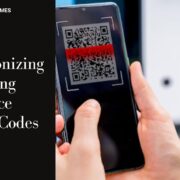Joel is a whiz with computers. When he was just…

The gaming industry has always been at the forefront of technological innovation, and its latest evolution involves the integration of blockchain technology and cryptocurrency. The rising popularity of trading pairs like BTC/USDT has influenced how this convergence is reshaping how players interact, trade, and create value within virtual worlds, marking a significant shift in the gaming ecosystem.
Table of Contents
ToggleThe Traditional Gaming Model and Its Limitations
For decades, online games have operated on centralized systems where game developers maintain complete control over virtual assets, currencies, and player accounts. Players invest countless hours and honest money into games but never truly own their digital assets. When a game shuts down, or a player’s account is compromised, years of progress and investment can vanish instantly. This model has long frustrated players who desire more control and ownership over their gaming experiences.
Blockchain’s Promise to Gaming
Blockchain technology introduces a fundamental shift in how digital ownership works within games. By leveraging decentralized networks and smart contracts, blockchain gaming enables actual ownership of virtual assets, creating what many call “play-to-own” experiences. Players can now acquire, trade, and sell in-game items across different platforms, with their ownership rights permanently recorded on the blockchain.
The Economic Revolution: Play-to-Earn
One of the most compelling aspects of blockchain gaming is the emergence of play-to-earn mechanics. Unlike traditional games, where value flows primarily from players to developers, blockchain games create economic ecosystems where players can earn cryptocurrency or valuable digital assets through skillful gameplay. This model has gained particular traction in developing economies, where players can earn meaningful income through gaming activities.
Enhanced Security and Transparency
Blockchain technology addresses several security concerns that have plagued online gaming.

The immutable nature of blockchain records makes it extremely difficult to hack or duplicate virtual assets. Smart contracts automatically execute trades and transactions, eliminating the risk of fraud. Furthermore, the transparent nature of blockchain technology allows players to verify the rarity and authenticity of their digital assets.
Interoperability and Cross-Game Assets
A significant advantage of blockchain gaming is the potential for interoperability between different games and platforms. Digital assets are no longer confined to a single game’s ecosystem. A sword earned in one game could potentially be used in another or traded for different assets on various marketplaces. This interoperability creates a more connected gaming universe and increases the value proposition for players investing in virtual assets.
The Role of NFTs in Gaming
Non-fungible tokens (NFTs) have become a cornerstone of blockchain gaming, representing unique digital assets that players can truly own. These tokens can represent anything from character skins and weapons to virtual real estate and collectible cards. The uniqueness and scarcity of NFTs create natural market dynamics, with rare items commanding higher values based on their utility and desirability.
Challenges and Growing Pains
Despite its potential, blockchain gaming faces several challenges. Environmental concerns about blockchain’s energy consumption, particularly for proof-of-work systems, have led to pushback from some gaming communities. Additionally, the learning curve associated with cryptocurrency wallets and blockchain technology can be steep for casual gamers. Market volatility of cryptocurrencies and NFTs also introduces financial risks that traditional gaming doesn’t present.
The Future Landscape
The evolution of blockchain technology towards greater accessibility and user convenience suggests a growing integration with mainstream gaming platforms. While established gaming companies are cautiously exploring blockchain features, they’re doing so with measured steps.
Mass market success will depend on developers’ ability to seamlessly weave blockchain elements into engaging gameplay, ensuring the technology enhances rather than overshadows the core gaming experience. The emphasis must remain on creating captivating games where blockchain serves as an enabling technology rather than the main attraction.
Impact on Game Development
The integration of blockchain technology is influencing how games are designed and developed.

Developers must now consider economic models, token distribution, and governance systems alongside traditional game design elements. This has led to the emergence of new game genres and hybrid experiences that blend traditional gaming mechanics with blockchain elements.
Decentralized Autonomous Organizations (DAOs) in Gaming
One of the most revolutionary aspects of blockchain gaming is the emergence of DAOs that give players direct influence over game development and governance. Through governance tokens, players can vote on everything from game mechanics and balance changes to economic policies and future development priorities.
This democratization of game development creates a deeper connection between players and the games they love, as they become active participants in shaping the game’s future rather than passive consumers. Some blockchain games have even implemented player-run councils that work alongside development teams to ensure decisions benefit the entire gaming community.
Conclusion
The fusion of blockchain and cryptocurrency with gaming platforms represents a pivotal transformation that extends beyond mere technical advancement – it’s revolutionizing our understanding of digital economies and virtual property rights. Despite existing hurdles, the gaming industry continues to innovate, driven by the promise of authentic digital asset ownership, revenue-generating gameplay mechanisms, and seamless cross-platform compatibility. With ongoing technological refinements and enhanced user accessibility, blockchain gaming is positioned to become a cornerstone of tomorrow’s gaming landscape.
The convergence of gaming and blockchain technology is still in its early stages, but its potential to revolutionize how we play, own, and trade digital assets is undeniable. As more players and developers embrace these technologies, we may be witnessing the beginning of a new era in gaming history, where virtual worlds become more interconnected, economically viable, and player-centric than ever before.
Joel is a whiz with computers. When he was just a youngster, he hacked into the school's computer system and changed all of the grades. He got away with it too - until he was caught by the vice-principal! Joel loves being involved in charities. He volunteers his time at the local soup kitchen and helps out at animal shelters whenever he can. He's a kind-hearted soul who just wants to make the world a better place.






